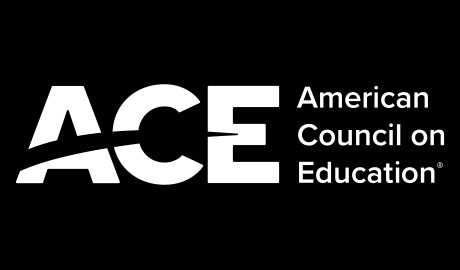Financial Accounting – Online Higher Education Course
Numbers tell amazing stories—and this online financial accounting course teaches students the skills to uncover those stories. Guided by an expert in financial fraud investigations, students use true crime tales to decode accounting practices.
A New Way to Learn Financial Accounting
In Intro to Financial Accounting, students will:
- Demonstrate an understanding of basic finance and accounting principles
- Analyze and prepare financial statements in accordance with recognized standards
- Identify the steps and sequence of the accounting cycle
- Understand and compare internal controls and how they facilitate ethical accounting practices
Gen Ed That Simply Works

Turnkey Courses
With online, asynchronous courses that are ready to run, you can deliver high-quality learning and outcomes predictably and affordably.

Curriculum You Can Trust
Every course is recommended by the American Council on Education. So you can trust the curriculum meets rigorous academic standards.

Captivating Student Experience
Students enjoy cinematic lectures from experts in the field and interactive, mastery-based learning—all in a flexible, 14-week course that fits their schedules.

Unlimited Enrollment
With no minimum or maximum enrollment, students get the courses they need when they need them, so they stay on track in their degree program.
Discover the magic of learning with Intro to Financial Accounting
Watch the Trailer
Empower students to find the story in the numbers
-
Key Concepts
-
Learning Outcomes
-
Assessments
-
Educator Support
-
World-Class Instructors
Key Concepts Covered
-
Introduction to Accounting and Financial Statements
- Importance and users of accounting
- Accounting activities and career paths
- Financial statements and their relationships
- Analyzing and recording transactions
- Journal entries
-
Adjustments and Completion of the Accounting Cycle
- Adjusting entries and the adjustment process
- Recording and posting common types of adjusting entries
- Ledger balances and preparing an adjusted trial balance
- Preparing financial statements using the adjusted trial balance
- Closing entries and post-closing trial balance
- The current ratio and working capital balance
- The comprehensive accounting cycle
-
Merchandising Transactions, Fraud, and Internal Controls
- Merchandising vs. service activities and transactions
- Perpetual vs. periodic inventory systems
- Freight-in methods
- Accounting fraud, internal controls, and management responsibilities
- Bank reconciliation and associated journal entries
- Financial statement fraud and Sarbanes-Oxley Act (SOX) requirements
-
Accounting for Receivables and Inventory
- Revenue Recognition Principle
- Uncollectable accounts
- Receivables management using financial ratios
- Notes receivable and accounts receivable
- Cost of goods sold and ending
- Inventory: Periodic Method
- Inventory valuation errors
-
Long-Term Assets and Liabilities
- Tangible and intangible assets
- Capitalized costs vs. expenses
- Depreciation methods
- Intangible assets and recording related transactions
- Analyzing, journalizing, and reporting current liabilities
- Contingent liabilities
- Journal entries for short-term notes payable
- Pricing and amortization of long-term liabilities (straight-line method)
- Statement of cash flows: purpose, preparation (indirect method), assessing liquidity and solvency
Learning Outcomes
-
Course Learning Outcomes
- Demonstrate an understanding of basic financial accounting principles
- Analyze and prepare financial statements in accordance with recognized standards
- Identify the steps and sequence of the accounting cycle
- Understand and compare internal controls and how they facilitate ethical accounting practices
- Calculate inventories and cost of goods sold
- Define tangible and intangible assets
- Distinguish between current and long-term liabilities
- Apply various accounting ratios to assess the financial health of a business
Assessments
-
Quizzes and Exams
- Course quizzes and exams consist of multiple choice, true/false, select all that apply, matching, and open-response questions. All are autograded by the LMS, so educators can spend more time with students and less time grading.
Educator Support & Dashboard
-
Access All Course MaterialEducators and administrators have full access to the Partner Dashboard and all course material from Day 1.
-
View Course MilestonesEasy-to-use tools show milestone dates and deadlines for the cohort, as well as the full weekly course schedule.
-
Monitor Student Progress in Real TimeCoach students throughout the course—from registration to the final exam—with complete reporting on their current course grades, assessment scores, and engagement with course material.
-
Download Student Grades & ProgressEducators and administrators can download student grades and full progress report details in CSV format.
-
Review Student Submissions for Graded Assessments
Your students will learn from DePaul University accounting professor and licensed CPA, Kelly Richmond Pope, Ph.D. She combines her gift for storytelling with a lifetime of real-world experience to bring financial accounting to life for students.
World-Class Instructors
-
World-Class InstructorsYour students will learn from DePaul University accounting professor and licensed CPA, Kelly Richmond Pope, Ph.D. She combines her gift for storytelling with a lifetime of real-world experience to bring financial accounting to life for students.
Frequently Asked Questions About Intro to Financial Accounting
-
How are Outlier courses structured?Outlier courses are divided into a series of chapters and sections. Each section contains cinematic video lectures and active learning (our interactive digital textbook) that help students learn the course content. Students demonstrate their knowledge on graded assessments, including mastery-based quizzes they can retake up to 5 times.
-
Are there any course prerequisites?No.
-
Are there any student eligibility requirements?
Students must be at least 13 years old. Students who enroll in an Outlier course should be ready for the academic rigor of college-level coursework and carefully consider their existing responsibilities and dedication.
-
What technology does my school need to take Outlier courses?
Each student must have access to technology that meets the technical requirements noted in this Help Center article.
-
What is the minimum/maximum enrollment?
All Outlier courses have unlimited enrollment, with no minimum or maximum. So they easily adapt to your scheduling and staffing needs.
-
What support is available for educators?
Your educators get complete visibility into student progress in the Partner Dashboard, including:
- Progress monitoring based on the course syllabus and schedule
- Grade pacing and forecasting based on students’ performance
-
Is the course completely online?Yes, Outlier courses are 100% online and asynchronous. Your students can learn during any class period—anywhere in the universe with Wi-Fi and a laptop or desktop computer.